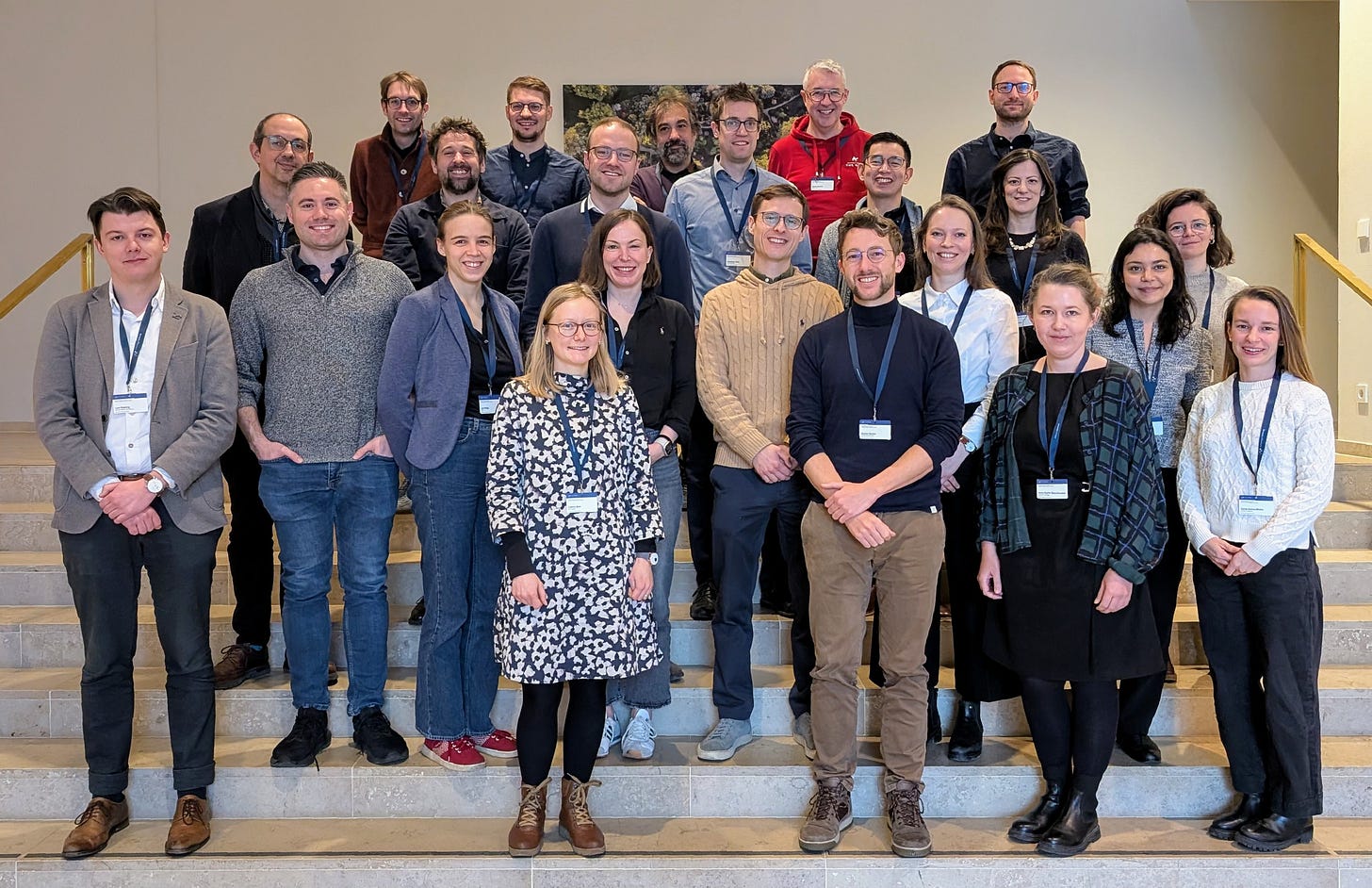The Future of Historical Political Economy in Europe
By Bastian Becker (Humboldt-University of Berlin), Lukas Haffert (University of Geneva), Cathrin Mohr (University of Bonn)
Historical Political Economy (HPE) has gained considerable traction in the social sciences over the past decade. A dedicated journal and its own handbook have greatly contributed to fostering a scholarly community and enhancing the field’s visibility. Yet, these efforts remain heavily centered on scholars and institutions in the United States. Consider the new Oxford Handbook of HPE: Only four of the 65 contributors are based at European institutions. Recognizing this imbalance, the handbook’s editors conclude: “the future frontier of the field likely falls outside of the United States, which is the concern of a disproportionate amount of the current literature”.[1]
What does it take to advance this frontier and to more firmly establish HPE as a research field in Europe? To develop some answers to this question, we tried to map the current state of HPE in Europe through a survey among researchers. Moreover, we organized a workshop for researchers interested in the establishment of the field together to identify challenges and opportunities.
We fielded our survey in late 2024 and received 59 respondents from HPE researchers working at European Institutions.[2] In February 2025, we brought together 28 researchers from all over Europe-and beyond-in Hanover, Germany. We were fortunate to receive generous financial support by the Volkswagen Foundation through a new, rather unconventional, funding line designed to support emerging research areas. Instead of the usual paper presentations, we had a full three days to engage in discussions on the philosophical and institutional foundations of the field.
Here, we summarize the main take-aways from our survey and the workshop discussions.
A growing field with weak institutional foundations
A first result of the survey – echoed during the workshop – was wide agreement on the perception that HPE is a growing field in Europe, but one that still lacks institutional foundations. When asked to what extent HPE is currently an established field in Europe on a scale from 0 to 4, the average response was just 1.9.
This lack of institutional foundations is reflected by the fact that very few respondents completely specialize in HPE: Only a quarter of respondents described HPE as their “most important field of research”, whereas more than half classified it as: “One of several important fields.” Similarly, less than 10% of respondents indicated that they teach pure HPE courses. For most respondents, HPE topics are something they have to integrate in courses with a broader thematic focus, and over one-third indicated that they do not teach HPE content at all.
Given this situation, how can HPE be more firmly established in Europe? Our survey results and workshop discussions suggest three key priorities, all related to a core feature of HPE: Interdisciplinarity.
Interdisciplinarity and its limits
Interdisciplinarity is clearly very central to the identity of HPE. Generally, our survey revealed a strong commitment to interdisciplinary engagement, with more than two-thirds of respondents agreeing that “HPE is an interdisciplinary field.” Large majorities also reported to have participated in interdisciplinary conferences and to have worked in interdisciplinary research teams. However, our discussions also showed that interdisciplinarity raises certain challenges for the establishment of a joint institutional setting, especially for building academic networks and for publishing.
Given the limited institutionalization of HPE as a distinct field in Economics or Political Science departments in Europe, junior researchers, in particular, have strong incentives to stay within the confines of their main fields: Economists try to build a network of economists; political scientists and sociologists do the same within their fields. This disciplinary separation makes it difficult for HPE researchers to exchange ideas. The key challenge is to create spaces for interdisciplinary exchange without weakening the links to existing and important communities in everyone’s main fields. Our survey and discussions clearly attest to a strong demand for such spaces. Conferences or smaller workshops that are appealing to individuals from different fields offer a first step for bridging this gap.
The area where the practice of interdisciplinary work was most muted was in publication strategies. More than a third of Economists and half of all Political Scientists reported never having submitted work to journals outside of their discipline. When asked which journals they would recommend sending HPE work to, Political Scientists overwhelmingly recommended journals from their own discipline, most prominently the APSR, CPS, and the JOP. Economists were actually slightly more likely to recommend journals outside of their discipline: While the Economic Journal and the Journal of Economic History were most frequently mentioned, the APSR ranked third. We leave it open whether this means that political science journals are better able to appeal to interdisciplinary audiences or that economists are more interested in publishing outside their field.
During the workshop we discussed the career concerns associated with publishing outside one’s field. A strategy that has been proven successful for some interdisciplinary teams is to agree ex-ante to which displine’s journal joint work will be submitted. Repeated coauthorship and alternating disciplinary journals can unlock the interdisciplinary prisoner’s dilemma, but this is easier for tenured researchers that are able to plan over longer time horizons.
Beyond concrete strategies, many participants emphasized the value of low-stakes exchanges across disciplinary boundaries. While publication practices remain largely siloed, research workshops, joint reading groups, or co-teaching can be a fruitful exercise to start engaging with researchers from other disciplines and identify complementarities. In a field like HPE, where intellectual common ground must often be actively constructed, this kind of regular dialogue may be more important than is typically acknowledged. Sometimes, “just” talking to each other is not a distraction from academic progress – but a prerequisite for it.
An open field, but open to whom?
An open question for HPE is what disciplinary boundaries it can - and should - seek to cross. While it is quite popular to describe HPE as having three constituent parts of History, Politics, and Economics (cf. Figure 1 from Jenkins and Rubin 2024), the actual collaboration with the Historical discipline is very limited. For example, the HPE Handbook mentioned above features only a single historian (Benati/Carugati 2023). By contrast, participation in our survey and workshop suggests that, perhaps, sociology is a discipline that has much more overlap with HPE than has previously been discussed. This certainly concerns the theoretical commitment to hypothesis testing and generalizability. It may also concern methodological commitments, in particular when one takes seriously the call for more qualitative work that some survey participants mentioned. There are also strong overlaps when it comes to research questions in HPE and sociology: When asking for the most important topics within HPE in our survey, among the top answers were many areas which are also central to sociology, such as “nation building”, “identity”, “culture” and “protests”.
Several participants mentioned during the workshop that they were initially unsure what to expect from a three-day event without traditional research presentations and with a strong emphasis on meta-level discussions. What exactly had they signed up for? Would the format even work? As organizers, we arrived in Hannover with similar questions. What if the conversation stalled after just half a day because researchers were more comfortable discussing their own work than engaging in abstract reflections? In the end, these concerns proved entirely unfounded.
Fittingly for a workshop focused on meta-level inquiry, our most important takeaway also lies at that level: to foster meaningful interdisciplinary collaboration among scholars of institutions, it may be especially productive to encourage them to reflect on the institutional settings in which they themselves are embedded.
[1] See page 3: Jenkins, J. A., & Rubin, J. (2024). Historical Political Economy: What Is it? In: Jenkins, J. A., & Rubin, J. The Oxford Handbook of Historical Political Economy. Oxford University Press.
[2] Most survey respondents hold PhDs in political science (46%) or economics (42%), primarily from universities in Germany (23%), the United Kingdom (20%), the United States (16%), or Italy (11%). Approximately 60% completed their PhD within the past 10 years and 72% identified as male.
Authors
Bastian Becker is a Postdoctoral Researcher at the Humboldt-University of Berlin. He received his PhD in Political Science from the Central European University. His website is www.beckerbastian.net
Lukas Haffert is associate professor of comparative politics at the University of Geneva. He holds a Ph.D. in Political Science from the Max Planck Institute for the Study of Societies. His website is www.lukashaffert.com
Cathrin Mohr is a Post-Doc at the University of Bonn. She holds a PhD in Economics from LMU Munich. Her website is cathrinmohr.com.





